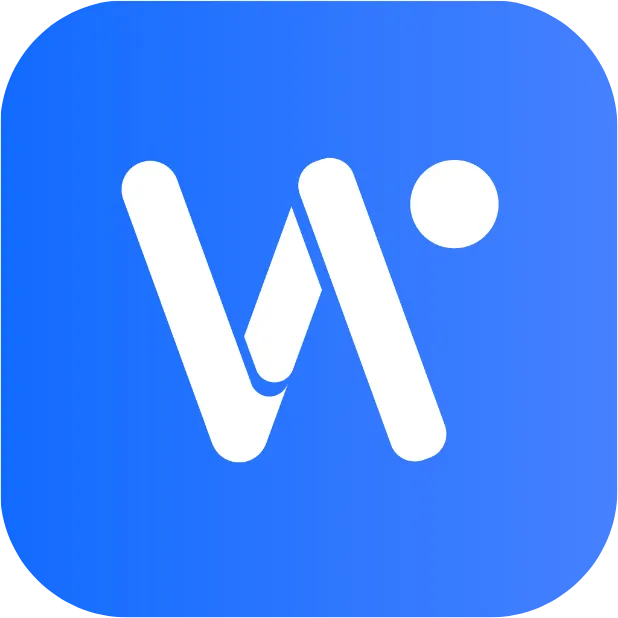Who else wants to leverage first-party data and AI in Google Ads for global success?
In today's competitive digital landscape, businesses face the dual challenge of reaching high-quality leads while optimizing their advertising spend. Recent case studies from IE University and Educaedu demonstrate how leveraging first-party data, AI-driven strategies, and localized campaigns can transform Google Ads performance. For instance, IE University achieved a 46% reduction in cost-per-lead by integrating proprietary data with Value-Based Bidding, while Educaedu boosted organic traffic for clients by 45% through its "billboard effect" strategy. These successes highlight the importance of moving beyond generic campaigns and embracing data-driven, market-specific approaches. Whether you're in education, hospitality, or e-commerce, these insights can help refine your Google Ads strategy for maximum impact.

Ⅰ. How to Leverage First-Party Data in Google Ads for Higher-Quality Leads
The strategic use of first-party data in ad is critical for optimizing lead quality and campaign efficiency. As demonstrated by Educaedu, a global educational platform operating in 20 countries, integrating CRM data with ads enables precise audience segmentation and lead scoring. Educaedu’s hybrid B2B-B2C model relies on analyzing user behavior across its platforms (e.g., Emagister.com, Educaweb.com) to identify high-intent prospects, such as those searching for "digital marketing courses in Madrid" or "online master’s degrees." By leveraging first-party data, Educaedu shifted its Google Ads strategy to prioritize Broad Match keywords, which now account for 86% of its Search campaign structure, capturing synonyms and related queries to maximize reach. This approach, combined with Creative Excellence best practices, improved ad relevance and drove 340,000 daily clicks from users researching educational programs.
Educaedu further enhanced lead quality by implementing Educatrack, an attribution tool that measures the "billboard effect"—where users discover institutions on Educaedu before converting directly on client websites. Data revealed that 45% of users searching for vocational training courses on Educaedu later visited partner sites, with referral traffic converting at twice the rate of organic visits. Key ads keywords like "first-party data Google Ads" and "lead scoring ad" are essential for replicating this success, as they align with Educaedu’s focus on data-driven optimization. By prioritizing high-intent users and minimizing wasted spend, businesses can emulate Educaedu’s results, such as a 17% increase in Google Search campaign investment and a 104% boost in lead conversions.
Ⅱ. Value-Based Bidding in Google Ads: Maximizing ROI for Education and Beyond
Value-Based Bidding (VBB) is a game-changer for advertisers seeking to maximize ROI, particularly in competitive sectors like education. IE University’s implementation of VBB resulted in a 46% cost-per-lead reduction, demonstrating its efficacy in prioritizing high-value prospects. Unlike traditional bidding strategies focused solely on conversions, VBB dynamically assigns values to leads based on their likelihood to convert into high-revenue customers. For example, a user searching for "executive business master programs" may be assigned a higher bid value than someone searching for "short online courses," aligning with Educaedu’s approach to leveraging Google Search for broader match strategies. By integrating proprietary data—such as past enrollment rates and program fees—into ads, IE University enabled the algorithm to automatically prioritize leads with higher lifetime value. This strategy is especially impactful in markets with economic disparities, where lead quality varies significantly. Keywords like "value-based bidding Google Ads" and "ROI optimization ads" are critical for advertisers exploring this method. Educaedu’s success with Broad Match (86% of their Search campaign structure) and Creative Excellence (80% adoption) further underscores the importance of aligning bidding strategies with user intent, as seen in their 17% YoY increase in Google Search investment and 104% higher conversion rates for clients leveraging their platform. The synergy between VBB and audience insights—similar to Educaedu’s "billboard effect"—highlights how advanced attribution tools (e.g., Educatrack) can quantify incremental value, ensuring advertisers maximize both visibility and ROI.
Ⅲ. Breaking Language Barriers with AI: Broad Match Strategies in Google Ads
AI-powered Broad Match campaigns are revolutionizing multilingual and multicultural advertising by leveraging ads' advanced intent-matching capabilities. Topkee's comprehensive Google Ads services emphasize the strategic use of Broad Match alongside keyword research and smart bidding to maximize campaign reach across diverse linguistic contexts. Unlike rigid Exact or Phrase Match approaches, Broad Match dynamically interprets semantically related queries. This aligns with Topkee's data-driven methodology, where keyword research tools and competitor analysis identify high-intent terms while Broad Match fills gaps in culturally nuanced searches.
Topkee’s integration of TTO tools further enhances these campaigns by enabling cross-account budget management and conversion tracking, ensuring ROI optimization for global advertisers. For businesses targeting multilingual audiences, pairing Broad Match with Topkee’s creative production and remarketing strategies—such as behavior-based audience segmentation—can amplify relevance. Advertisers exploring this approach should prioritize keywords like "Broad Match Google Ads optimization" and "AI-driven multilingual advertising" to align with Topkee’s expertise in scalable, intent-based campaigns. The synergy of Broad Match AI and Topkee’s end-to-end services—from website SEO audits to performance reporting—ensures cohesive expansion into new markets while maintaining cost efficiency.

Ⅳ. The Billboard Effect: How Google Ads Drives Organic Traffic for Educational Brands
Educaedu’s attribution model demonstrates the powerful "billboard effect" of ad. Their analysis revealed that 61% of users who visited client websites after searching on Educaedu did so within 24 hours, proving that ad visibility accelerates organic discovery. For example, a user searching for "online master’s in business administration" might click an Educaedu ad, compare programs, and then search for "Business School X reviews" before converting on the school’s site. This indirect conversion path underscores the importance of tracking multi-touch attribution. Educaedu’s Educatrack tool quantified this impact, showing that promoted schools saw 104% higher conversion rates from organic traffic. Keywords like "ad attribution" and "billboard effect marketing" are critical for advertisers looking to measure and leverage this phenomenon.
Ⅴ. Mobile UX and Google Ads: How Small Changes Can Boost Conversions by 77%
Bahía Príncipe’s A/B tests prove that minor mobile UX optimizations can yield dramatic results. By simplifying their app’s hotel search widget and improving visual hierarchy, they increased bookings by 77%. Key takeaways include reducing clutter on foldable screens, placing critical CTAs like "Book Now" above the fold, and pre-filling search fields to minimize user effort. These changes align with Google’s emphasis on mobile-first indexing, where poor UX can negatively impact ad rankings. Advertisers should prioritize keywords like "mobile UX for ad" and "ad mobile strategy" to enhance their campaigns.

Conclusion
From first-party data integration to AI-driven Broad Match, these strategies showcase how tailored, data-informed approaches can transform Google Ads performance. IE University's success demonstrates the power of combining proprietary data with Value-Based Bidding, achieving a 180% increase in leads and 46% lower cost per lead through localized Broad Match campaigns. Similarly, Educaedu's 86% Broad Match adoption and audience segmentation improved lead quality while reducing CPCs in competitive markets. Whether you're aiming to reduce costs, improve lead quality, or enhance mobile conversions, the key lies in continuous testing, localization, and leveraging AI-powered keyword strategies. For optimal implementation, consult a Topkee's specialist to unlock your campaign's full potential with data-driven audience targeting and adaptive bidding.







